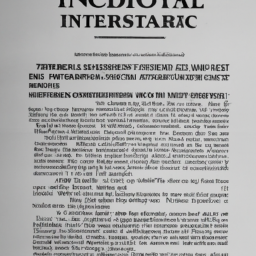,"... that has elected to be treated as a business development company (“BDC”) under the Investment Company Act of 1940, as amended (the..."
The Investment Company Act of 1940, also known as the ICA, is a federal law that regulates the organization and operation of Investment companies in the United States. The ICA was enacted in 1940, in the wake of the Great Depression, to protect investors from potential abuses in the securities markets. The ICA imposes a series of requirements on Investment companies, including registration, disclosure, and anti-fraud provisions.
Section 223 of the Investment Advisers Act of 1940 (“Advisers Act”) was added in 2010 by the Dodd-Frank Wall Street Reform and Consumer Protection Act. This section imposes additional requirements on Investment advisers for the purpose of preventing and detecting fraud, abuse and self-dealing. It also governs the use of certain performance and expense reimbursement practices for Investment companies registered under the Investment Company Act of 1940 (the “1940 Act”).
The 1940 Act requires most Investment companies to register with the US Securities and Exchange Commission (SEC). Registration is required to ensure that investors are provided with essential information about the company and its operations, as well as to enable the SEC to monitor the company’s activities. The registration requirements include the filing of a registration statement with the SEC containing detailed information about the company, its directors and officers, its services, and its financial condition.
The 1940 Act also contains provisions that govern the structure and operations of Investment companies. These provisions include restrictions on the types of Investment that can be made, as well as limits on leverage and other risk-taking activities. The 1940 Act also imposes disclosure and anti-fraud provisions that are designed to protect investors, such as requirements to disclose all material facts about the company and its operations.
The 1940 Act also requires Investment companies to register with the SEC, and to file periodic reports with the commission. These reports must include financial statements and other information about the company and its operations. Additionally, the 1940 Act requires Investment companies to provide investors with certain information and documents, including an Investment company’s prospectus, and annual and semi-annual reports.
In addition to the 1940 Act, the SEC has adopted a number of rules and regulations that apply to Investment companies. These rules and regulations include requirements for books and records, internal controls, and other procedures to ensure compliance with the 1940 Act. The SEC also has adopted rules and regulations that govern the advertising of Investment companies’ products and services.
The 1940 Act and the rules and regulations adopted by the SEC are designed to protect investors from fraud and abuse in the securities markets. By ensuring that Investment companies comply with the 1940 Act, the SEC is able to maintain the integrity of the securities markets and protect investors.
